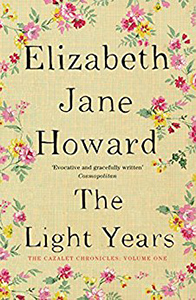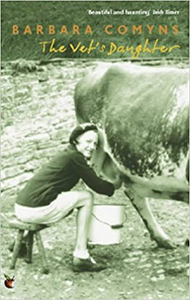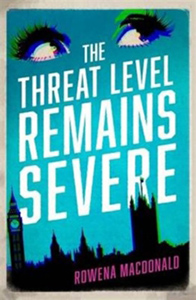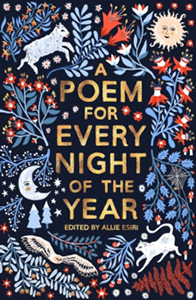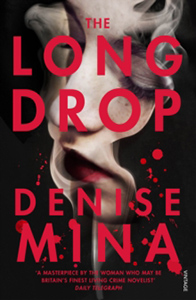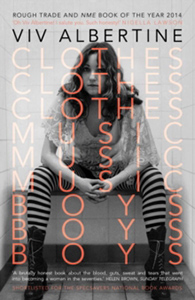New Writing North – Books of the Year 2017
Claire Malcolm
 I enjoyed Richard Lloyd Parry’s non-fiction account of Lucie Blackman’s murder, People Who Eat Darkness – a dark investigation into one of Japan’s most famous murder cases. I was fascinated that for his next book he chose to explore Japan’s 2011 tsunami and the aftershocks of the event. Ghosts of the Tsunami (Jonathan Cape) is an extraordinary book. It’s a compelling knitting together of many personal stories and the heart breaking tragedy of those that died and the people who were left behind to dig out the bodies and to endure the many ramifications of the event. It’s also an eye-opening exploration of Japanese culture, behaviour and public affairs and the tensions that exist between them. Parry is the Asia Editor for The Times so you would expect a high quality journalistic approach to the material but this book is much more, sensitive, insightful, respectful and beautifully written.
I enjoyed Richard Lloyd Parry’s non-fiction account of Lucie Blackman’s murder, People Who Eat Darkness – a dark investigation into one of Japan’s most famous murder cases. I was fascinated that for his next book he chose to explore Japan’s 2011 tsunami and the aftershocks of the event. Ghosts of the Tsunami (Jonathan Cape) is an extraordinary book. It’s a compelling knitting together of many personal stories and the heart breaking tragedy of those that died and the people who were left behind to dig out the bodies and to endure the many ramifications of the event. It’s also an eye-opening exploration of Japanese culture, behaviour and public affairs and the tensions that exist between them. Parry is the Asia Editor for The Times so you would expect a high quality journalistic approach to the material but this book is much more, sensitive, insightful, respectful and beautifully written.
My book of the year has been Black Teeth and a Brilliant Smile by Adelle Stripe. It’s a portrait of the life of the late Andrea Dunbar, best known as the writer of Rita, Sue and Bob Too. Dunbar grew up on the tough Buttershaw Estate outside Bradford and her talent for writing was discovered by a teacher when she was still a teenager. Told through a mixture of narrative and imagined diary entries, it features characters both real and fictional. The book follows Dunbar from Buttershaw to the Royal Court Theatre, memorably capturing her tragically short life.
I’d also like to give a quick mention to David Sedaris’ diaries: Theft by Finding, which during a serious year, has definitely been the book that has made me laugh the most recently.
My favourite read of 2017 is The Hate U Give by Angie Thomas, a YA novel that comments on the Black Lives Matter movement through the perspective of Starr, a young African American girl. After witnessing an act of police brutality, Starr struggles to reconcile the inconsistencies in the treatment of black citizens by the US judicial system, whilst battling with her own identity. THUG is a story so close to reality, I think it’s a necessary and politicising read for both young people and adults alike.
One of my tests for a good book is whether it moves me to tears, so my favourite read this year was The Cazalet Chronicles by Elizabeth Jane Howard. This five-book saga depicts the ups and downs of a British family from the 1930s to the 1950s. On the recommendation of a colleague (thanks, Rebecca!) I read the series during my summer holiday and became totally absorbed by the family’s relationships and the social history of the period. My much loved grandparents courted, set up home and raised their family during the same era so it brought home the realities of life during a time of incredible change.
My book of the year was published in 1959, it’s The Vet’s Daughter by Barbara Comyns. It’s a sad, grotesque but darkly funny tale about a young woman whose response to her oppressive suburban life and her father’s brutality, is to levitate. I also loved On Golden Hill by Frances Spufford for its vivid rendering of 18th Century New York when it really was a village, and for its pace and satisfying plot, also George Saunders’ Lincoln in the Bardo for its compassion and kindness.
Rowena Macdonald, The Threat Level Remains Severe (Aardvark Bureau)
Known for her wonderful short stories, Rowena Macdonald’s debut novel takes place almost entirely within the Houses of Parliament. Happily, politicians play only a passing role. The story is focused on Grace, an administrator who longs for a more exciting life, her conceited new Australian colleague Brett and the enigmatic Reuben Swift, who seems like he might offer Grace what she’s looking for. The writing is laced with an off-kilter humour and is blessed with a quality that makes it feel at all times honest and real. What begins as an amusing story of the allure of an office fling develops into something much darker: an uneasy exploration of the different strata of loneliness and the escalating dangers of obsession. This is a rare literary page-turner that succeeds in combining moments of sudden unsuspected drama with stylistic artistry.
A Poem for Every Night of the Year edited by Allie Esiri, has brought me the most pleasure this year. I am reading it with my 11 year-old daughter.
The selection is excellent and although you can’t love absolutely everything, I feel like my life is improved each day by a thoughtfully selected poem that offers a perspective, expresses an idea or captures a sentiment – and of course it is a moment that we share. Our poetry reading habit has become firmly ingrained so that it now seems absurd to have any day without poetry in it.
I was all set to flip back to 1 January as the new year begins, but I’m delighted to see Esiri has produced a second anthology, A Poem for Every Day of the Year, which I’m trying hard not to rifle through until we’ve sung the last poem in this book, ‘Auld Lang Syne’ by Robert Burns.
I feel like any list of favourite books this year would be incomplete without The Long Drop by Denise Mina, winner of this year’s Gordon Burn Prize. This book made me uncomfortable, unsettled, confused and I loved every minute of it. In Mina’s book she writes specifically about one inexplicable, nightlong interaction between the victims’ patriarch, William Watt and the prime suspect, Peter Manuel. The narrative switches between a tense retelling of the court proceedings and the down-the-rabbit-hole type bonding between Watt and Manuel. Each fully absorbs you, making you completely unaware you are at the mercy of the text. Every word had me hooked, and considering the success of this book so far, I am definitely not the only one.
Clothes, Clothes, Clothes. Music, Music, Music. Boys, Boys, Boys. by Viv Albertine
I stole this book from my sister’s bookshelf in February this year. As a teenager I’d dress like I was in The Slits and would play the punk tapes my dad had stored at the back of the cupboard. There were so many parts of Viv’s story that I loved and resonated with: being an awkward teenager, working-class, a feminist, a music lover, determined to be in a band with no musical skill. Viv tells her story like you’re in it. You meet Sid Vicious when she meets Sid Vicious, early on, before the infamy. You meet Vivienne Westwood and she intimidates you both. It’s honest, it’s tragic, it’s triumphant, it’s brutal and it’s simple, like a punk song. And it’s very human: you’re rooting for Viv but she annoys you too. After Clothes. Music. Boys. I revisited Bob Stanley’s Yeah Yeah Yeah: The Story of Modern Pop. And after both of these I picked up a guitar and started learning to play.
My book of the year is A Pale View of Hills by Kazuo Ishiguro – the debut from this year’s Nobel Prize for Literature winner. It’s the story of a Japanese woman now living in England, dwelling on the recent suicide of her daughter and retreating into the memory of one past summer in Nagasaki. I read this book in one sitting and struggled to forget it when I returned to the real world. It’s just the right amount of haunting and unnerving, and left me racing to goodreads to try and understand the ending.
I decided to read some Stephen King this year in anticipation of what was billed as the scariest film of the decade (…it wasn’t). I had never read any of his books before, writing them off as what I thought was low-brow thriller tat, but he deserves the hype. His writing is understated but gripping and, being a fan of accents, the ‘Mainah’ dialect he writes with is grin-worthy. Despite the completely unnecessary pre-teen orgy scene – possibly just a manifestation of his inter-chapter drug and booze binges – I loved it.





